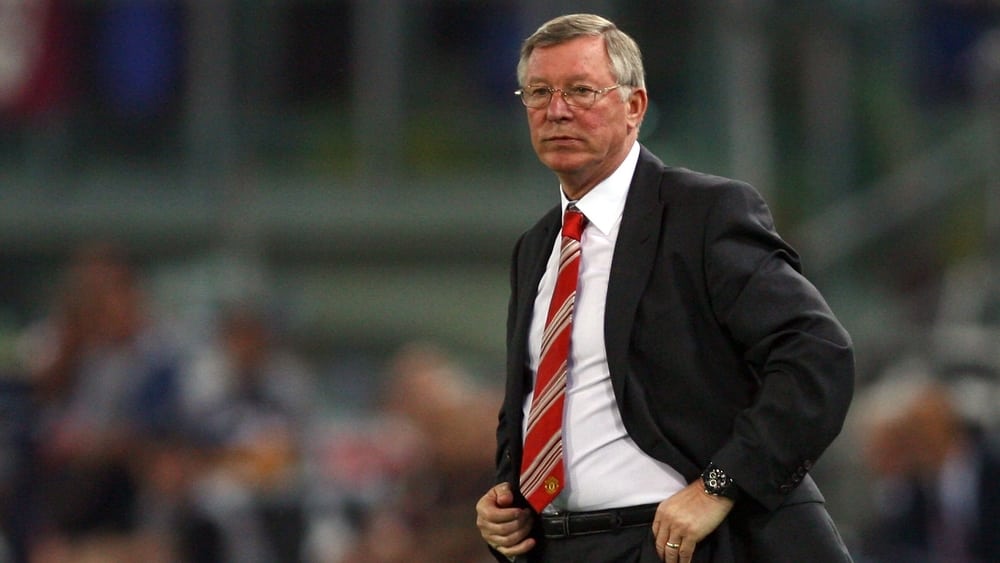From the moment the trailer for Never Give In was released I felt a sense of bitter disappointment, as I suspected this “official” documentary – directed by Sir Alex Ferguson’s son Jason – would not address many of the controversial elements of Sir Alex’s life and career. When watching, this sense of disappointment was confirmed, as this “authorised” biography looks back on his career and life through rose-tinted glasses.
Jason Ferguson aims to present an intimate portrait of his father, humanising the man that has long had a reputation for being a cold disciplinarian who ruled with an iron fist – a reputation that the former football manager was partly responsible for cultivating. The documentary is generally successful at doing this. The account of Sir Alex’s near-death experience and recovery is compelling, with it revealing his attention to detail – he conducted learning exercises to retain his memory –, vulnerability, and regret. In his recovery he wrote a letter to his wife expressing deep regret for not helping to raise the children, stating that ‘it’s maybe an apology for not always being there’. This is captivating as it exposes the human cost and personal sacrifice that frequently comes with success, which is not discussed often. It also reveals that there are often people left behind while others bask in the bright lights and the cameras. The documentary also details a conflict between Sir Alex and his father, who was angered that he was partying before games and letting his talent go unfulfilled. The fallout from this resulted in them not speaking for two years. This episode may explain why Sir Alex was so single-minded, determined and tough on his players – he did not want them to waste their potential like he nearly did. The documentary is generally successful at illustrating how his environment and upbringing had an indelible impact on him.
However, it is the issue of family where this documentary starts to fall apart. This is because the documentary conspicuously fails to address the accusations of nepotism that were levelled at Sir Alex after he hired his son as Chief Scout of Manchester United. In addition, this authorised history fails to address the accusations that Sir Alex Ferguson pressured and coerced young players into signing with his son Jason’s talent agency.
There are many more contentious issues that this documentary chooses to avoid, such as that of the horse the Rock of Gibraltar or player fallouts, but the most pressing given the current context of the ESL is the Glazers. For many years Sir Alex was an ardent supporter and defender of the Glazers, insisting that they were good for Manchester United and had United’s best interests at heart. However, this documentary erases this fact from the record – what producers choose to omit tells us just as much as what they choose to include. This omission is important because it is a deliberate attempt to prevent Ferguson from being the subject of protests and indignation from the footballing world and media.
Although, the most depressing thing about this authorised documentary is that it is symptomatic of the media and fan’s attitude towards Sir Alex. He has never been held accountable for supporting the Glazers by the media or Manchester United fans, the same fans who stormed Old Trafford forcing the Man Utd vs Liverpool game to be postponed. Instead, they offer him a free pass, perhaps because of his age or because of his achievements. Furthermore, much of the media, especially since his retirement, have decided to not ask Sir Alex challenging questions, instead choosing to ask softball questions that sustain the wistfulness surrounding him.
The documentary does have merits but is overwhelmingly flawed because of the way in which it chooses to glorify and romanticize the coach rather than creating a more in-depth, rounded, and nuanced account of his life and career. It will hopefully be only a matter of time until such a documentary is produced, and when it is I will be first in the queue to watch.
Two stars
Image Credit: The MovieDB




